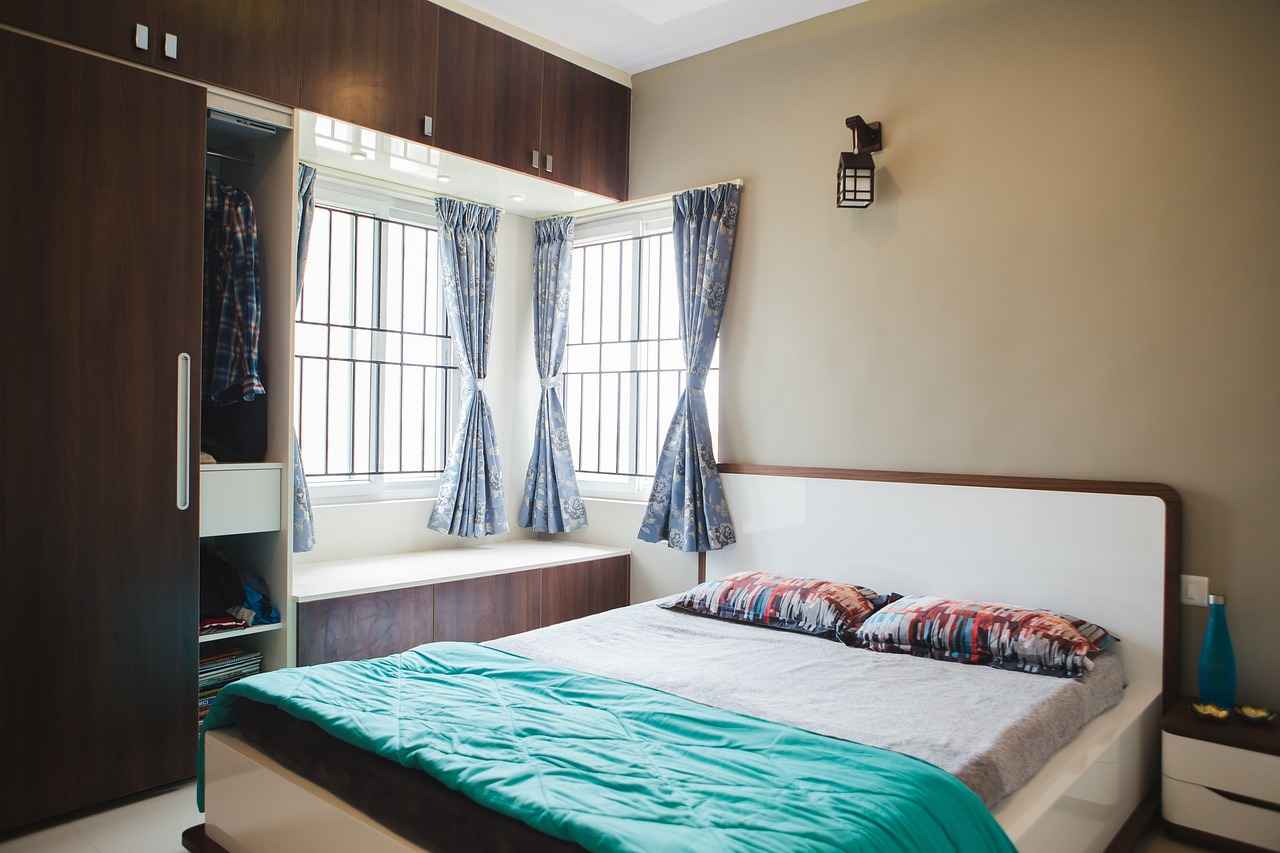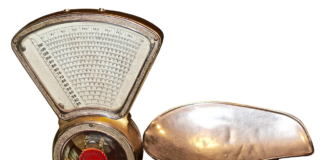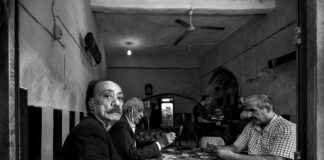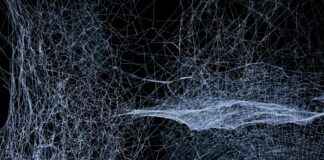This article serves as a comprehensive guide on how to create a cozy and stylish bedroom, with a special focus on modern bed designs that not only enhance comfort but also elevate the aesthetic appeal of your space. A well-designed bedroom can transform your daily routine, providing a sanctuary for relaxation and rest.
Understanding Modern Bed Designs
Modern bed designs are characterized by their emphasis on both functionality and aesthetics. These designs often utilize innovative materials and contemporary styles, resulting in comfortable sleeping spaces that seamlessly integrate with the overall bedroom decor.
Choosing the Right Bed Size
Selecting the right bed size is essential for maximizing comfort and managing space effectively. Consider your room dimensions and personal preferences when making this important choice.
- Standard Bed Sizes Explained: Knowing the standard bed sizes—twin, full, queen, and king—can help you choose the best fit for your needs.
- Benefits of a King-Size Bed: A king-size bed provides ample space for couples, ensuring comfort and minimizing disturbances during sleep.
- When to Choose a Twin or Full Bed: Ideal for smaller rooms or guest accommodations, twin and full beds maximize space while maintaining a cozy atmosphere.
Material Choices for Modern Beds
The materials used in modern bed designs significantly affect their style, durability, and comfort. Common choices include:
- Wood
- Metal
- Upholstered beds
Incorporating Color and Texture
Color and texture are vital components in bedroom design, contributing to the overall ambiance. Here’s how to effectively use these elements:
- Choosing a Color Palette: Soft, neutral tones promote relaxation, while bolder colors can add personality.
- Adding Textural Elements: Incorporating various textures, such as soft bedding and decorative pillows, enhances warmth and invites comfort.
Maximizing Space with Modern Bed Designs
Modern bed designs often include features that maximize space, such as:
- Storage Beds: These beds come with built-in drawers or compartments, helping to minimize clutter.
- Lofted Beds: Elevating the sleeping area creates additional floor space for other furniture or activities.
Accessorizing Your Modern Bed
Accessories can significantly enhance the overall look of your bed and bedroom. Consider the following:
- Selecting the Right Bedding: Opt for bedding that complements your bed design and color scheme for a cohesive look.
- Headboard Options: A stylish headboard can serve as a focal point, with options ranging from upholstered to wooden styles.
Conclusion: Creating Your Dream Bedroom
Designing a cozy and stylish bedroom with modern bed designs requires careful consideration of size, materials, colors, and accessories. By following these guidelines, you can create a personal sanctuary that reflects your unique style and promotes relaxation.

Understanding Modern Bed Designs
is essential for anyone looking to create a stylish and comfortable sleeping environment. Modern bed designs prioritize both functionality and aesthetics, blending innovative materials with contemporary styles. This fusion not only enhances the overall look of the bedroom but also elevates the quality of sleep. In this article, we will delve deeper into the key aspects of modern bed designs, exploring their features, materials, and how they can transform your sleeping space.
Modern bed designs can be categorized into various styles, each offering unique benefits:
- Minimalist Beds: These beds focus on simplicity and clean lines, making them ideal for smaller spaces.
- Platform Beds: Featuring a low profile and often built-in storage, platform beds maximize space while providing a modern look.
- Upholstered Beds: These beds add a touch of luxury and comfort with padded headboards and soft fabrics.
- Adjustable Beds: Perfect for those seeking customized comfort, adjustable beds allow users to change the position of their mattress.
When selecting a modern bed design, consider the materials used. Popular choices include:
| Material | Benefits |
|---|---|
| Wood | Durable and classic, offering a warm aesthetic. |
| Metal | Strong and versatile, suitable for various styles. |
| Upholstery | Provides comfort and a soft touch, available in various colors and patterns. |
Incorporating color and texture into your modern bed design can significantly enhance the overall ambiance of your bedroom. Soft, neutral tones often promote relaxation, while bolder colors can add personality and vibrancy. Additionally, mixing textures through bedding, pillows, and throws can create a cozy and inviting atmosphere.
In conclusion, understanding modern bed designs involves recognizing the blend of functionality and aesthetics. By choosing the right style, materials, and colors, you can create a sleeping space that is not only comfortable but also a true reflection of your personal style. Embrace the possibilities that modern bed designs offer and transform your bedroom into a sanctuary of relaxation.

Choosing the Right Bed Size
is an essential aspect of creating a comfortable and functional bedroom space. The bed is typically the focal point of the room, and selecting the right size can significantly affect both comfort and the overall aesthetic of your bedroom.
When deciding on a bed size, it is crucial to consider several factors:
- Room Dimensions: Measure your bedroom to understand how much space you have available. A larger bed in a small room can make the space feel cramped, while a smaller bed in a large room may appear lost.
- Personal Preferences: Consider how you sleep. If you often move around or share your bed, you might prefer a larger size. A couple may find a queen or king size bed more comfortable, while a single sleeper might opt for a twin or full size.
- Future Needs: Think about your future plans. If you anticipate needing more space, it may be wise to invest in a larger bed now.
Here is a brief overview of standard bed sizes:
| Bed Size | Dimensions (inches) | Ideal For |
|---|---|---|
| Twin | 38 x 75 | Children, small rooms |
| Full | 54 x 75 | Single adults, guest rooms |
| Queen | 60 x 80 | Couples, spacious rooms |
| King | 76 x 80 | Couples who need extra space |
In conclusion, selecting the right bed size is not just about aesthetics; it is about ensuring a good night’s sleep. By carefully considering your room dimensions and personal preferences, you can make an informed decision that enhances both comfort and style in your bedroom.
Standard Bed Sizes Explained
When it comes to creating a cozy and stylish bedroom, understanding standard bed sizes is essential. The right bed size not only enhances the aesthetic of your room but also significantly impacts your comfort during sleep. In this section, we will delve into the various bed sizes, including twin, full, queen, and king, providing you with the necessary insights to select the most suitable option for your personal space and sleeping requirements.
| Bed Size | Dimensions (inches) | Ideal For |
|---|---|---|
| Twin | 38 x 75 | Children, small rooms |
| Full | 54 x 75 | Single adults, guest rooms |
| Queen | 60 x 80 | Couples, spacious rooms |
| King | 76 x 80 | Couples, large bedrooms |
Understanding these dimensions is key to making an informed decision. For instance, a twin bed is perfect for children or smaller spaces, while a full bed offers a bit more room, making it suitable for single adults or guest accommodations. If you share your sleeping space, a queen bed provides ample sleeping area without overwhelming your room. For those who prioritize space and comfort, a king bed is the ultimate choice, allowing for plenty of room to move around.
Ultimately, selecting the right bed size involves considering not just the physical dimensions of your bedroom, but also your personal sleeping habits and preferences. A well-chosen bed size contributes to a restful night’s sleep, ensuring that you wake up feeling refreshed and ready to tackle the day.
Benefits of a King-Size Bed
A king-size bed is a popular choice for couples and individuals seeking a spacious and comfortable sleeping environment. Its generous dimensions provide numerous advantages that enhance the overall sleep experience. Here are some key benefits:
- Ample Space: With a width of 76 inches and a length of 80 inches, a king-size bed offers plenty of room for two people. This extra space allows couples to stretch out comfortably without disturbing each other’s sleep.
- Enhanced Comfort: The larger surface area reduces the likelihood of feeling cramped or confined, promoting a more restful night’s sleep. This is particularly beneficial for those who tend to move around during the night.
- Reduced Disturbances: One of the most significant advantages of a king-size bed is its ability to minimize disturbances. Couples can shift positions without waking each other up, leading to improved sleep quality.
- Ideal for Spacious Bedrooms: King-size beds are perfect for larger bedrooms, allowing for a balanced and aesthetically pleasing layout. They can serve as a stunning focal point in the room, enhancing its overall design.
- Versatile Bedding Options: A king-size bed opens up a wide variety of bedding options, from luxurious sheets to stylish comforters, providing an opportunity to express personal style and create a cozy atmosphere.
In conclusion, investing in a king-size bed can significantly enhance your sleeping experience. Its spaciousness and comfort make it an ideal choice for couples, while also adding a touch of elegance to larger bedrooms. If you’re considering upgrading your bed, a king-size option may be the perfect solution for your needs.
When to Choose a Twin or Full Bed
Twin and full beds are excellent choices for those looking to optimize space in smaller rooms or guest accommodations. These bed sizes not only maximize the available area but also provide a cozy sleeping environment that caters to various needs.
- Ideal for Small Spaces: Twin beds, measuring 38 inches by 75 inches, are perfect for children’s rooms, studio apartments, or guest rooms where space is limited. They fit comfortably in corners or against walls, allowing for more room for other furniture.
- Guest Accommodations: Full beds, also known as double beds, measuring 54 inches by 75 inches, are great for guest rooms. They offer more sleeping space than a twin bed, accommodating individuals who prefer more room to stretch out.
- Versatile Usage: Both twin and full beds can serve multiple purposes. For example, a twin bed can be used as a daybed in a living area, while a full bed can double as a sofa for lounging during the day.
- Cost-Effective: When furnishing a home on a budget, twin and full beds are often more affordable than larger sizes. This makes them an ideal choice for young adults or families looking to furnish multiple rooms.
In addition to their practical benefits, twin and full beds come in various styles and materials, allowing you to choose a design that complements your room’s decor. Whether you prefer a modern look with sleek lines or a more traditional style with intricate details, there’s a bed to match your aesthetic.
Ultimately, the choice between a twin or full bed depends on your specific needs, room size, and personal preferences. Both options provide a cozy sleeping area while maximizing available space, making them ideal for smaller rooms or guest accommodations.
Material Choices for Modern Beds
The materials used in modern bed designs play a crucial role in determining their overall style, durability, and comfort. Selecting the right material is essential for creating a bedroom that reflects your personal taste while providing a restful sleeping environment.
- Wood: Wood is a timeless choice that offers both strength and aesthetic appeal. From the rich grains of oak and walnut to the sleek finish of maple, wooden beds can complement various interior styles. They are known for their durability and can last for years with proper care.
- Metal: Metal beds are often associated with a modern or industrial look. They are lightweight yet sturdy, making them easy to move. Available in various finishes, metal beds can add a touch of elegance or a contemporary edge to your bedroom.
- Upholstered Beds: Upholstered beds provide a plush and inviting feel, often covered in fabric or leather. These beds can be designed with tufting or padding, offering both comfort and style. They are perfect for those who prioritize a cozy atmosphere in their sleeping space.
When choosing a bed, consider how each material aligns with your lifestyle and the overall design of your bedroom. For instance, if you have children or pets, a wooden or metal bed might be more practical due to their durability. On the other hand, if comfort is your top priority, an upholstered bed could be the ideal choice.
In conclusion, the choice of materials in modern bed designs significantly impacts not only the visual appeal of your bedroom but also its functionality and comfort. By understanding the benefits of each material, you can make an informed decision that enhances your bedroom experience.

Incorporating Color and Texture
Color and texture are fundamental elements in bedroom design that significantly influence the overall ambiance and comfort of the space. By understanding how to effectively utilize these aspects, you can transform your bedroom into a cozy retreat that reflects your personal style.
When selecting a color palette, consider soft, muted tones such as pastels or earthy shades that promote relaxation and tranquility. These colors can make a room feel more spacious and inviting. For those who prefer a touch of vibrancy, consider adding accent walls or decorative elements in bolder hues to create visual interest without overwhelming the space.
Texture also plays a pivotal role in creating warmth and depth in your bedroom. Incorporating various textures can enhance comfort and invite a sense of coziness. Here are some effective ways to add texture:
- Layered Bedding: Use a combination of materials such as cotton sheets, a fluffy duvet, and a chunky knit throw to create a visually appealing and inviting bed.
- Rugs: A plush area rug can add softness underfoot while also serving as a focal point in the room. Choose a rug that complements your color scheme and adds warmth to the space.
- Pillows: Decorative pillows in varying sizes and textures can enhance the aesthetic appeal of your bed. Consider using velvet, linen, or faux fur for added comfort.
In addition to these elements, consider the lighting in your bedroom. Soft, warm lighting can enhance the cozy atmosphere created by your chosen colors and textures. Use lamps with soft shades or string lights to create a welcoming glow.
In conclusion, the thoughtful incorporation of color and texture can significantly enhance the ambiance of your bedroom. By choosing the right palette and layering different materials, you can create a space that is not only stylish but also a true sanctuary for relaxation.
Choosing a Color Palette
is a fundamental aspect of creating a serene and inviting bedroom environment. The colors you select can significantly influence the overall mood and atmosphere of the space. A well-thought-out color palette can enhance the mood of your bedroom, making it a sanctuary for relaxation and rejuvenation.
When it comes to color choices, soft, neutral tones such as beige, light gray, and pastel shades are often recommended for promoting tranquility. These colors create a calm backdrop that can help you unwind after a long day. They also allow for flexibility in accessorizing, as they pair well with various textures and accent colors.
On the other hand, opting for bolder colors can add personality and vibrancy to your space. Colors like deep blue, rich emerald green, or even a striking burgundy can serve as statement shades that reflect your unique style. However, it’s essential to balance these bold choices with softer elements to prevent the room from feeling overwhelming.
| Color Type | Effects | Examples |
|---|---|---|
| Soft Neutrals | Promote relaxation | Beige, Light Gray, Pastels |
| Bolder Colors | Add personality | Deep Blue, Emerald Green, Burgundy |
When selecting your color palette, consider incorporating accent colors through accessories like throw pillows, artwork, or bedding. This approach allows you to introduce vibrant hues without overwhelming the space. Additionally, using a color wheel can help you find complementary colors that enhance the overall aesthetic.
In conclusion, the right color palette can transform your bedroom into a stylish retreat. By thoughtfully combining soft neutrals with bolder accents, you can create a harmonious space that reflects your personality and promotes relaxation.
Adding Textural Elements
Creating a cozy and inviting bedroom environment is essential for promoting relaxation and comfort. One of the most effective ways to achieve this is by throughout the space. By incorporating various textures, you can enhance the overall aesthetic while also making the room feel warm and welcoming.
To begin, consider using soft bedding. Opt for materials like cotton or linen that not only feel good against the skin but also add a touch of elegance to your bed. Layering different bedding pieces, such as a plush duvet and light throw blankets, can create a visually appealing and comfortable sleeping area.
Next, don’t underestimate the power of plush rugs. A soft rug underfoot can transform the feel of the room, providing warmth and comfort, especially in colder months. Choose a rug that complements your color scheme while also adding a tactile element that encourages you to walk barefoot.
Additionally, decorative pillows are an excellent way to introduce different textures and colors. Mix and match various fabrics, such as velvet, faux fur, or woven materials, to create an inviting and layered look. These pillows not only serve as decorative accents but also provide extra comfort when lounging in bed.
Furthermore, consider incorporating textured wall art or decorative throws that can add depth to your bedroom. Items like macramé wall hangings or fabric wall panels can serve as focal points, drawing the eye and making the space feel more dynamic.
Lastly, plants can also contribute to the textural variety in your bedroom. The natural textures of leaves and flowers can enhance the overall ambiance, making the room feel more alive and vibrant.
In conclusion, by thoughtfully incorporating various textures—such as soft bedding, plush rugs, decorative pillows, and natural elements—you can create a bedroom that is not only cozy but also stylish. This approach adds depth and warmth, ensuring your personal sanctuary is inviting and comfortable.

Maximizing Space with Modern Bed Designs
In today’s world, where living spaces are often limited, modern bed designs have evolved to meet the needs of those seeking both style and functionality. These innovative designs not only enhance the aesthetic appeal of a bedroom but also incorporate features that maximize space effectively.
- Built-in Storage Solutions: Many modern beds come equipped with built-in storage options. These beds feature drawers or compartments located beneath the mattress, allowing you to store linens, clothing, or personal items out of sight. This design is particularly beneficial for those living in smaller apartments or homes where every square foot counts.
- Lofted Styles: Lofted beds are another excellent choice for maximizing space. By elevating the mattress, these designs create additional floor space underneath that can be utilized for a desk, seating area, or even extra storage. This versatility makes lofted beds ideal for children’s rooms, studio apartments, or any compact living environment.
- Murphy Beds: Murphy beds, or wall beds, are a classic solution for small spaces. These beds can be folded up against the wall when not in use, freeing up valuable floor space during the day. Modern designs incorporate stylish finishes and mechanisms that make them easy to operate, blending seamlessly with your decor.
By incorporating these space-saving features, modern bed designs not only enhance the functionality of your bedroom but also contribute to a more organized and visually appealing environment. Whether you opt for a storage bed, a lofted style, or a Murphy bed, you can create a cozy and stylish sleeping area that maximizes every inch of your space.
Conclusion: Embracing modern bed designs with space-maximizing features allows you to transform your bedroom into a functional yet stylish sanctuary. Consider your specific needs and the size of your room when selecting a bed, and enjoy the benefits of a well-organized and aesthetically pleasing space.
Storage Beds for Minimalists
Storage beds are a revolutionary solution for individuals seeking to maintain an organized and clutter-free environment in their bedrooms. These innovative designs not only maximize space but also enhance the overall aesthetic of the room. By incorporating drawers or compartments beneath the mattress, storage beds make it easy to stow away personal items, bedding, or seasonal clothing, thereby reducing visible clutter.
For those living in small apartments or compact homes, storage beds are particularly beneficial. They provide an effective way to utilize vertical space without sacrificing style. Instead of traditional bed frames that consume space, these beds combine functionality with modern design, making them a popular choice among minimalists. Here are some key benefits of storage beds:
- Space Efficiency: By integrating storage into the bed design, you can free up valuable floor space for other furniture or decor.
- Organizational Ease: Drawers and compartments allow for easy access to items, making it simpler to keep your bedroom tidy.
- Variety of Styles: Storage beds come in various materials and designs, from sleek modern looks to more traditional styles, ensuring there’s something for every taste.
When selecting a storage bed, consider the size and layout of your bedroom. Ensure that the bed complements your existing decor while also providing the necessary storage space. Additionally, think about the types of items you plan to store; some beds feature deeper drawers for larger items, while others may be better suited for smaller belongings.
In conclusion, storage beds are an excellent investment for anyone looking to enhance their bedroom’s functionality and style. By choosing a design that meets your needs, you can create a serene and organized space that promotes relaxation and comfort.
Lofted Beds for Small Rooms
Lofted beds are an innovative solution for those looking to maximize space in compact living environments. By elevating the sleeping area, these beds create a sense of openness and allow for the utilization of the floor space beneath for various activities or additional furniture. This design is particularly advantageous in small bedrooms, studios, or shared spaces where every square foot counts.
One of the most significant benefits of lofted beds is their ability to transform the functionality of a room. For instance, the space underneath a lofted bed can be transformed into a cozy reading nook, a desk for studying, or even additional storage options. This versatility is invaluable for individuals who need to make the most of limited space without compromising on style or comfort.
Moreover, lofted beds come in various designs and materials, catering to different aesthetic preferences and needs. From modern metal frames to rustic wooden structures, there is a lofted bed to suit every decor style. This adaptability makes them not only practical but also an attractive addition to any bedroom.
When considering a lofted bed, it is essential to assess the height of the ceiling and the overall dimensions of the room. Proper measurements ensure that the bed fits comfortably without making the space feel cramped. Additionally, safety features such as guardrails and sturdy ladders should be prioritized to ensure a safe sleeping environment.
In conclusion, lofted beds are a smart choice for anyone looking to optimize their living space. By elevating the sleeping area, they provide additional floor space for other activities and furniture, making them a practical and stylish solution for small rooms. Whether for a child’s bedroom, a guest room, or a studio apartment, lofted beds can enhance both functionality and aesthetics.

Accessorizing Your Modern Bed
Accessorizing your modern bed is a fantastic way to elevate the overall look and feel of your bedroom. The right accessories not only enhance the aesthetic appeal but also contribute to the comfort and functionality of your sleeping space. Here are some key elements to consider when accessorizing your modern bed:
- Bedding Selection: Opt for bedding that complements your bed’s design and color scheme. Consider using a mix of textures and patterns to create visual interest. Soft, breathable materials like cotton or linen can enhance comfort while adding a touch of elegance.
- Headboard Choices: A headboard can serve as a striking focal point in your bedroom. Whether you prefer a sleek upholstered design, a rustic wooden piece, or a minimalist metal frame, choose a headboard that harmonizes with your overall decor style.
- Decorative Accents: Incorporate decorative pillows, throws, and blankets that add color and texture to your bed. Layering different sizes and shapes can create a cozy, inviting look. Don’t shy away from bold patterns or vibrant colors that reflect your personality.
- Bedside Accessories: Enhance functionality with bedside tables or nightstands that offer storage and display space. Adding lamps, books, or personal items can make your bedside area feel more personalized and organized.
- Art and Wall Decor: The walls surrounding your bed can significantly impact the room’s ambiance. Consider hanging artwork or photographs that resonate with your style. A well-placed mirror can also create an illusion of space and light.
Incorporating these accessories not only enhances the visual appeal of your bed but also transforms your bedroom into a stylish and comfortable retreat. Remember, the key is to find a balance between functionality and aesthetics, ensuring that your modern bed is both a sanctuary for rest and a statement piece in your home.
Selecting the Right Bedding
When it comes to designing a cozy and stylish bedroom, is essential. The bedding you choose not only affects the overall aesthetic of your room but also plays a crucial role in your comfort during sleep. Here are some key considerations to keep in mind:
- Match Your Bed Design: The bedding should complement the design of your bed. Whether you have a modern platform bed or a classic four-poster, choose bedding that enhances its style.
- Color Coordination: Opt for colors that align with your existing color scheme. Soft, neutral tones can create a calming effect, while vibrant hues can add a pop of personality.
- Material Matters: Select materials that are both stylish and comfortable. Cotton, linen, and bamboo are popular options that provide breathability and comfort.
- Texture Variety: Incorporating different textures can elevate the look of your bedding. Consider mixing smooth sheets with a chunky knit throw or plush pillows to create depth and warmth.
- Seasonal Changes: Don’t forget to switch your bedding according to the seasons. Lighter materials for summer and warmer fabrics for winter can enhance comfort year-round.
By carefully selecting bedding that matches your bed design and color scheme, you can achieve a cohesive look that promotes relaxation and enhances the overall ambiance of your bedroom. Remember, the right bedding not only improves the aesthetics but also contributes significantly to your sleeping experience.
Headboard Options for Style
A stylish headboard can serve as a focal point in your bedroom, transforming the overall aesthetic and atmosphere of the space. When choosing a headboard, it’s essential to explore various styles that complement your decor while enhancing comfort. Below are some popular headboard options to consider:
- Upholstered Headboards: These headboards are covered in fabric and often feature padding for added comfort. They come in a variety of colors and patterns, making them perfect for adding a touch of luxury and warmth to your bedroom.
- Wooden Headboards: For a more classic look, wooden headboards offer durability and timeless appeal. They can range from rustic to modern designs, allowing you to choose one that perfectly fits your style.
- Metal Headboards: Sleek and contemporary, metal headboards provide a minimalist aesthetic. They are often lightweight and easy to maintain, making them a practical choice for modern bedrooms.
- Canopy Headboards: These dramatic headboards create a sense of grandeur and intimacy. They can be paired with drapes for a romantic feel or left open for a more airy look.
- Storage Headboards: Combining functionality with style, storage headboards come equipped with shelves or compartments, perfect for keeping books or decorative items within reach.
When selecting a headboard, consider the overall theme of your bedroom. Whether you prefer a bold statement piece or a more subtle addition, the right headboard can enhance your space and reflect your personal style.
In conclusion, investing in a stylish headboard not only elevates the design of your bedroom but also contributes to your comfort and relaxation. Explore different styles, materials, and functionalities to find the perfect match for your decor.

Conclusion: Creating Your Dream Bedroom
Designing a cozy and stylish bedroom with modern bed designs is an art that requires thoughtful planning and creativity. By focusing on various elements such as size, materials, colors, and accessories, you can transform your bedroom into a personal sanctuary that not only reflects your unique style but also promotes relaxation and comfort.
Modern bed designs have evolved to prioritize both functionality and aesthetics. They combine innovative materials and contemporary styles, resulting in sleeping spaces that enhance the overall decor of your bedroom while ensuring comfort.
When it comes to selecting the right bed size, it’s crucial to consider your room dimensions and personal preferences. A well-chosen bed size can significantly impact your comfort and the flow of your space.
- Twin Bed: Ideal for smaller rooms or children’s spaces.
- Full Bed: Great for single sleepers who enjoy extra space.
- Queen Bed: Perfect for couples or those who like to spread out.
- King Bed: Offers ample space for maximum comfort.
The materials used in modern bed designs greatly influence their style and durability. Common options include:
- Wood: Provides a classic and warm feel.
- Metal: Offers a sleek and modern aesthetic.
- Upholstered: Adds comfort and softness to the design.
Color and texture are vital in creating a cozy atmosphere in your bedroom. A well-chosen color palette can enhance relaxation, while varied textures can add depth.
Modern bed designs often incorporate features that maximize space, such as:
- Storage Beds: These beds come with built-in drawers or compartments, perfect for minimizing clutter.
- Lofted Beds: Elevate the sleeping area to create additional floor space for other furniture.
To elevate the look of your bed, consider the following accessories:
- Bedding: Choose bedding that complements your bed design.
- Headboards: A stylish headboard can serve as a focal point in your bedroom decor.
In conclusion, designing a cozy and stylish bedroom with modern bed designs is a multifaceted process that involves careful consideration of various elements. By focusing on size, materials, colors, and accessories, you can create a space that not only looks great but also feels like a personal retreat. Remember to let your personal style shine through in your choices, ensuring that your bedroom is a true reflection of you.
Frequently Asked Questions
- What are the standard bed sizes available?
The standard bed sizes include twin, full, queen, and king. Each size caters to different room dimensions and personal preferences, ensuring everyone can find their perfect fit for a good night’s sleep.
- How do I choose the right bed size for my bedroom?
To choose the right bed size, consider your room’s dimensions, your sleeping habits, and whether you share the bed. A larger bed like a king is great for couples, while a twin or full bed works well in smaller spaces.
- What materials are best for modern beds?
Modern beds are often made from materials like wood, metal, or upholstery. Each material offers different aesthetics and comfort levels, so pick one that aligns with your style and needs.
- How can I maximize space in a small bedroom?
Consider using storage beds with built-in drawers or lofted beds that elevate the mattress, freeing up floor space for other furniture or activities. These designs are perfect for maximizing functionality in compact living areas.
- What accessories should I consider for my modern bed?
Accessories like stylish bedding, headboards, and decorative pillows can significantly enhance your bed’s appearance. Choose items that complement your overall decor to create a cohesive and inviting space.














